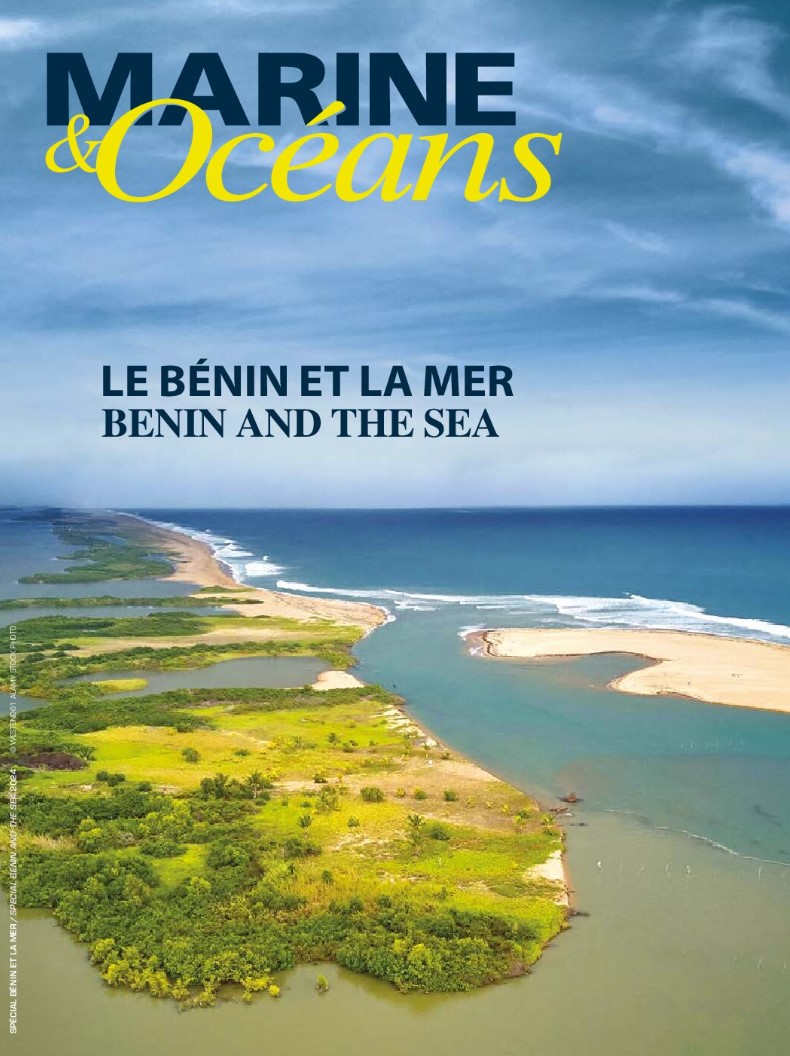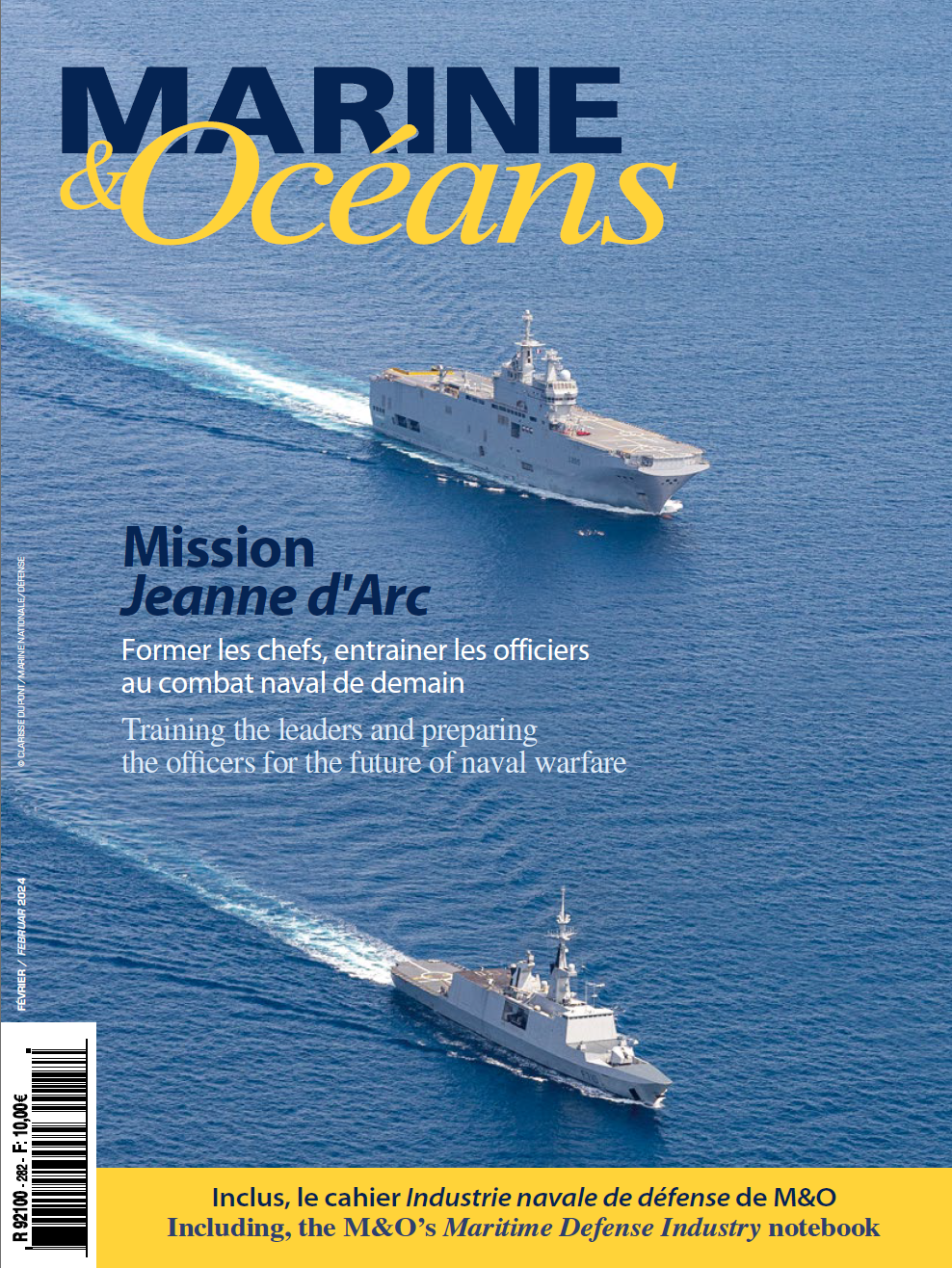La Convention de Montego Bay, signée en 1982, est entrée en vigueur en 1994 mais n’a jamais été ratifiée par les États-Unis. Quelles en sont les raisons ?
Comme beaucoup d’autres pays, les États-Unis ont refusé de signer la Convention en 1982 en raison de problèmes avec le chapitre XI relatif à l’exploitation minière des fonds marins. Le président Reagan a pris un arrêté en 1983 déclarant que les États-Unis se conformeraient à toutes les dispositions de la Convention relatives à la navigation, conformément au droit international coutumier. Après la révision des dispositions relatives à l’exploitation des fonds marins en 1994, les présidents américains successifs ont soutenu la ratification de la Convention. Malgré de multiples tentatives, les présidents Clinton, Bush et Obama n’ont pas encore réussi à obtenir les deux tiers des votes favorables du Sénat requis par la Constitution des États-Unis pour y adhérer.
La ratification de la Convention est un sujet controversé, voire conflictuel, aux États-Unis. Qui sont ses opposants et quels sont les arguments avancés de part et d’autre ?
De 1994 à 2004, le sénateur Jesse Helms (R-NC) qui présidait la Commission des Affaires étrangères du Sénat n’était pas favorable à la Convention. Depuis 2004, un groupe de sénateurs républicains s’opposent à la ratification de la Convention. Les opposants font valoir que le traité porte atteinte à la souveraineté des États-Unis. Ses partisans relèvent qu’en réalité il assure une large extension de la souveraineté américaine et de sa juridiction sur le plateau continental au-delà des 200 milles de la zone économique exclusive (ZEE).
Que veulent dire précisément les opposants à sa ratification lorsqu’ils avancent que la Convention porte atteinte à la souveraineté des États-Unis ?
En vertu des dispositions du chapitre XI de la Convention, dans certaines circonstances, les États côtiers peuvent revendiquer des droits sur les ressources des fonds marins au-delà de la ZEE. La procédure de revendication est régie par l’article 76 dont les dispositions permettent la reconnaissance de revendications de ressources étendues en contrepartie du versement d’une redevance modique sur la production de pétrole, gaz et minerai dans ces zones. Ces redevances ont pour vocation à financer des projets de développement économique dans les pays en voie de développement. Certains politiciens Conservateurs ont avancé que les règles d’exploitation des fonds marins porteraient atteinte à la souveraineté et à la juridiction des États-Unis sur les ressources minérales, pétrolières et gazières situées sur l’extension du plateau continental, et ont qualifié le paiement de cette redevance de taxe sur des ressources américaines. Pourtant, le montant des redevances est vraiment minime – environ 3 %, voire moins sur les revenus d’une exploitation d’un puits de pétrole ou de gaz – et les États-Unis gagneraient un droit de veto au Conseil de l’autorité internationale des fonds marins – autorité qui répartit les redevances au titre de l’aide au développement. Finalement, et ce qui est plus important, il n’existe pas de fondement en droit international public pour une reconnaissance de droits ou d’approbation des ressources pétrolières, gazières ou minérales au-delà de la ZEE en dehors des mécanismes prévus par la Convention.
Qui soutient la ratification de la Convention aux États-Unis ?
Le gouvernement a fortement soutenu la ratification de la Convention par les États-Unis, en particulier le Département de la Défense, le Département d’État, le Département du Commerce et tous les autres acteurs américains concernés par les océans. Le Pentagone est un ardent soutien de la Convention car elle contient un large arsenal juridique protégeant la liberté de navigation et de survol des océans.
La secrétaire d’État Hillary Clinton et le secrétaire à la Défense Léon Panetta se sont lancés au cours des derniers mois dans une intense campagne devant le Congrès en faveur de la ratification. Celle-ci pourrait-elle être votée dans un avenir proche ?
Il y a eu des auditions devant le Congrès sur la Convention en 2004, 2007 et plus récemment, mais aucune initiative formelle n’a été prise pour soumettre la ratification de la Convention au vote du Sénat. Il n’est pas possible de prévoir quand et si un tel vote pourrait intervenir. À mon avis, il y a 50 % de chances pour que la question revienne à l’ordre du jour entre les résultats de l’élection présidentielle et l’investiture du nouveau président. En toute hypothèse, les avantages de l’adhésion à la Convention sont tels pour les États-Unis que j’imagine qu’ils pourraient devenir partie au traité au cours du prochain mandat.
Quelles seraient les conséquences de la ratification de la Convention par le Congrès américain d’un point de vue économique et/ou stratégique ?
La Convention de Montego Bay sert l’intérêt stratégique américain d’une régulation libre des océans : celle qui défend la liberté de navigation et de survol pour favoriser la sécurité militaire et la stabilité avec les partenaires des États-Unis en Europe et en Asie, et la prospérité économique basée sur le développement des échanges commerciaux mondiaux. La ratification de la Convention par les États-Unis les aidera à renforcer la sécurité stratégique et économique.
Cette ratification pourrait-elle avoir des conséquences directes sur les relations sino-américaines dans un contexte de tension en mer de Chine ?
La ratification de la Convention aurait des conséquences indirectes mais significatives sur les relations sino-américaines et l’amélioration de la stabilité en mer de Chine. La Convention accorde des droits aux États côtiers dans une zone économique exclusive (ZEE) de 200 milles. De petits îlots, récifs coralliens ou rocheux qui ne peuvent accueillir une présence humaine n’ouvrent pas droit à une ZEE. La Chine revendique 80 % du sud de la mer de Chine au motif qu’elle possède des îlots épars et de minuscules rochers, mais cela ne constitue pas en soi un droit à une ZEE ou à des eaux intérieures. La Chine revendique ainsi des droits sur des zones qui sont déjà placées sous la juridiction d’autres États côtiers de la région tels que le Vietnam, les Philippines, la Malaisie, Brunei, l’Indonésie et Taiwan. Par conséquent, la ratification de la Convention par les États-Unis renforcera et soutiendra l’importance de l’adhésion de tous les pays aux règles du traité. En résumé, les revendications chinoises sont incompatibles avec la Convention, et la ratification par les États-Unis contribuera au renforcement de l’état de droit.
* James Kraska est capitaine de frégate du corps des juristes de la Marine américaine. Il est docteur en droit, titulaire de la chaire Howard S. Levis de droit des opérations, professeur à l’US Naval War College et membre de l’Institut de politique étrangère et du Centre de politique maritime de l’Institut océanographique Woods Hole. Le commandant Kraska a servi aussi bien au sein des forces en Asie-Pacifique qu’à l’état-major des armées. Il a enseigné dans les plus prestigieuses universités et écoles militaires, aux États-Unis et à l’étranger, telles que l’École de droit de Stanford ou la Faculté de droit international de La Haye, et donne régulièrement des consultations à des sociétés ou des organisations internationales. Il est l’auteur de nombreux articles juridiques publiés dans la presse spécialisée et de traités sur le droit et les enjeux maritimes.
** Frédéric Fontaine, capitaine de corvette de réserve, est avocat associé au cabinet Fontaine Mitrani.
Version Anglaise
Dr. James Kraska,

« U.S. accession to the United nations convention on the law of the sea (UNCLOS) helps to strengthen the rule of law ».
Dr. James Kraska ** serves as the Howard S. Levie Chair of Operational Law and is a member of the faculty of the International Law Department at the U.S. Naval War College in Newport, Rhode Island. He also holds appointments as Senior Fellow at the Foreign Policy Research Institute, Guest Investigator at the Marine Policy Center, Woods Hole Oceanographic Institution, and as a Senior Associate in the Center for Irregular Warfare and Armed Groups at the Naval War College.
UNCLOS, signed in 1982, took effect in 1994, but has never been ratified by the USA. What are the reasons for such reluctance?
Like many countries, the United States declined to sign UNCLOS in 1982 due to problems with Part XI concerning seabed mining. President Reagan issued an executive order in 1983 stating that the United States would comply with all of the navigational provisions of the Convention, which reflect customary international law. After the seabed mining provisions were revised in 1994, every U.S. president has supported U.S. accession to UNCLOS. Despite multiple attempts to obtain U.S. Senate advice and consent, President Clinton, Bush, and Obama have yet to secure a 2/3rd vote of the Senate, which is a Constitutional requirement for the U.S. to become a party.
The ratification of UNCLOS is a controversial and to some extent a contentious issue in the USA. Who are the opponents and what are their arguments?
From 1994-2004, Senator Jesse Helms (R-NC) chaired the Senate Foreign Relations Committee and did not support UNCLOS. Since 2004, a group of Republican Senators has opposed U.S. accession of UNCLOS. Although the opposition has most often claimed that the treaty undermines U.S. sovereignty, supporters point out that it actually ensures a large expansion of U.S. sovereign rights and jurisdiction over an extended continental shelf lying beyond the 200-mile exclusive economic zone.
What opponents to ratification of UNCLOS mean when they argue that the treaty would undermine US sovereignty?
Under Part XI of the treaty, under some circumstances coastal states may claim sovereign rights over the resources of the seabed beyond the EEZ. Formula for making such claims is in Article 76, and the provision affords recognition of extended resource claims in exchange for the coastal state paying a small royalty from oil, gas, and mineral production in those areas. The royalties are to be used to fund economic development projects in less developed countries. Some political conservatives have suggested that the rules pertaining to seabed mining infringe on U.S. sovereign rights and jurisdiction over minerals and oil and gas located on the extended continental shelf, and characterize the payment of royalties as a tax on what are U.S. resources. But the royalty payments are quite minimal–approximately 3 percent or less over the life of an oil or gas well–and the United States wields veto power in the Council of the International Seabed Authority–the governing body that distributes royalties as development aid. Finally, and most importantly, there is no basis in international law for separate recognition of lawful title or legal tenure over oil and gas wells and mineral mine sites beyond the EEZ except through the apparatus of UNCLOS.
On the other side, who are the persons or authorities supporting the ratification of UNCLOS in the USA?
The Executive branch of the U.S. Government has strongly supported U.S. accession to the Convention, including Department of Defense, Department of State, Department of Commerce, and every other U.S. oceans interest. The Pentagon has been a strong supporter of the Convention because it contains a comprehensive package of legal regimes protecting freedom of navigation and overflight throughout the world’s oceans.
Secretary of State Hilary Clinton and Secretary of Defense Leon Panetta have, for several months, committed themselves in a campaign before the Congress to support ratification of UNCLOS. Do you believe that such ratification may or should be voted in a near future?
Congress held hearings on the Convention in 2004, 2007, and more recently, but formal action was not taken to bring the treaty to a full vote of the Senate. It is impossible to predict when or if the Convention could be reconsidered. My personal view is that there is a 50 percent chance that the treaty will be taken up after the U.S. presidential election and before the winner of that election is sworn into office. In any event, the advantages of joining the Convention are so great for the United States that I would guess that the United States will become a party during the next administration.
What would be the consequences of ratification of UNCLOS by the US Congress for the USA and other countries from an economic and/or strategic point of view?
The Law of the Sea Convention underpins the U.S. strategic interest in a liberal order of the oceans—one that promotes freedom of navigation and overlight to facilitate military security and stability with U.S. partners in Europe and Asia, and economic prosperity based upon an expansion of global trade. American ratification will help the United States to strengthen strategic and economic security.
Would such ratification have direct consequences on US-China relationships with respect to South China Sea tensions?
American ratification of the Convention would have indirect but important and powerful implications for the U.S.-China relationship, and for enhancing stability in the South China Sea. The Law of the Sea Convention affords all coastal states the right to a 200-mile exclusive economic zone. Small features or coral formations and rocks that cannot sustain human habitation, however, are not entitled to an EEZ. China claims over 80 percent of the South China Sea based upon an assertion of ownership over scattered islets and miniscule rocks, but these features do not generate an EEZ of their own, let alone provide a basis for any claim of internal waters. The Chinese claims purport to lay claim to areas already part of the lawful rights and jurisdiction of coastal states in the area—including Vietnam, the Philippines, Malaysia, Brunei, Indonesia, as well as Taiwan. Thus, U.S. acceptance of the Convention will reinforce and support the importance of all countries’ adherence to the terms of the treaty. In sum, the Chinese claims are incompatible with UNCLOS, and U.S. accession to the treaty helps to strengthen the rule of law.
* Interview by Frédéric Fontaine, lawyer, lieutenant commander in the French Navy Reserve
James Kraska **
A commander in the U.S. Navy Judge Advocate General’s Corps, James Kraska served as legal adviser to joint and naval task force commanders in the Asia-Pacific, two tours in Japan, and in four Pentagon major staff assignments, including as a legal adviser to the Deputy Chief of Naval Operations, Oceans Law & Policy Adviser for the U.S. armed forces, and as Director of Treaty Negotiations concerning Law of the Sea, international humanitarian law, human rights, nuclear and conventional arms control, and non-proliferation.
Author of numerous scholarly articles, Kraska has taught and lectured at numerous academic and research institutions around the world, including The Hague Academy of International Law, Stanford Law School, Yale Law School, and the International Institute of Humanitarian Law in San Remo, Italy. He has consulted on oceans law and policy issues for international organizations, research institutions, and private companies in the United States, Europe, and Asia. His books include Maritime Security Law (Martinus Nijhoff 2012, with Pete Pedrozo), Maritime Power and the Law of the Sea (Oxford University Press 2010) and Contemporary Maritime Piracy (Praeger Security 2011), and he is editor of Arctic Security in an Age of Climate Change (Cambridge University Press 2011). He earned a master’s degree and research doctorate in international law from University of Virginia and a professional doctorate in law from Indiana University, Bloomington. Kraska also completed a master’s degree from the School of Politics & Economics, Claremont Graduate School. In 2010, he was awarded the Alfred Thayer Mahan Award for Literary Achievement by the Navy League of the United States.



